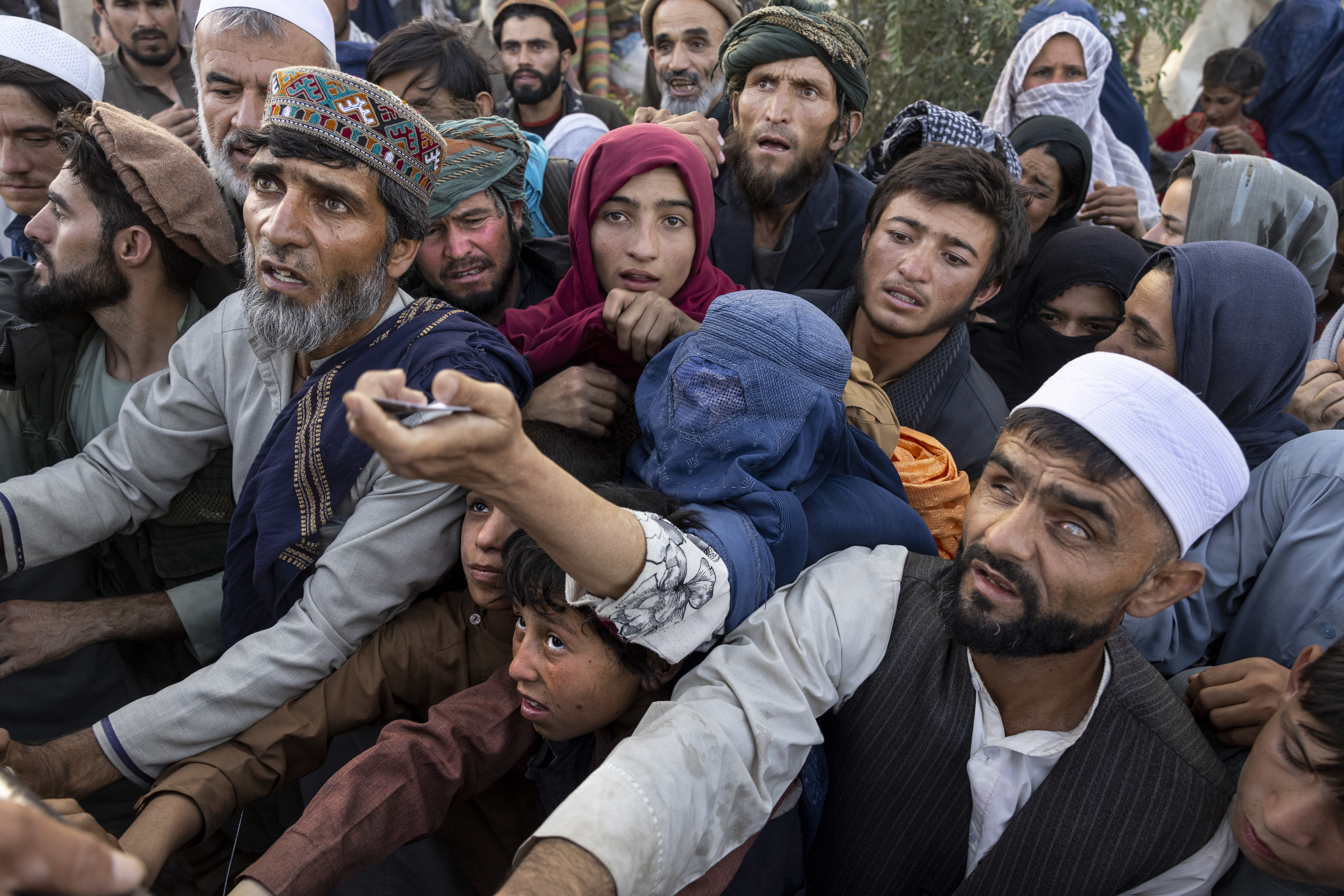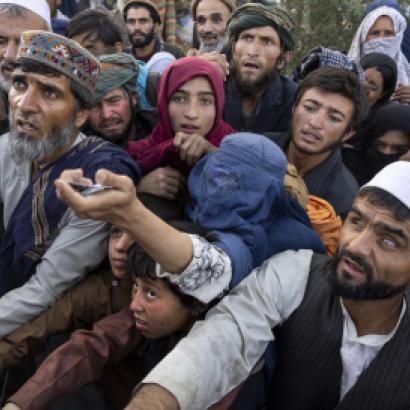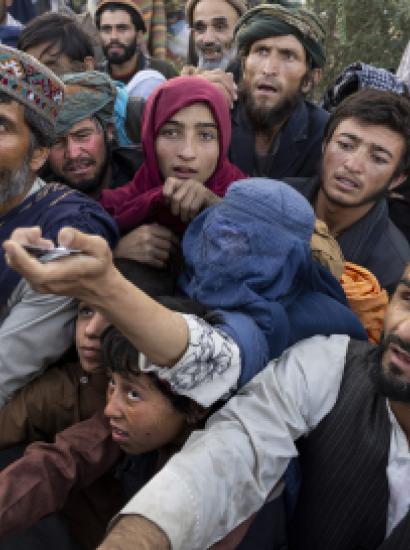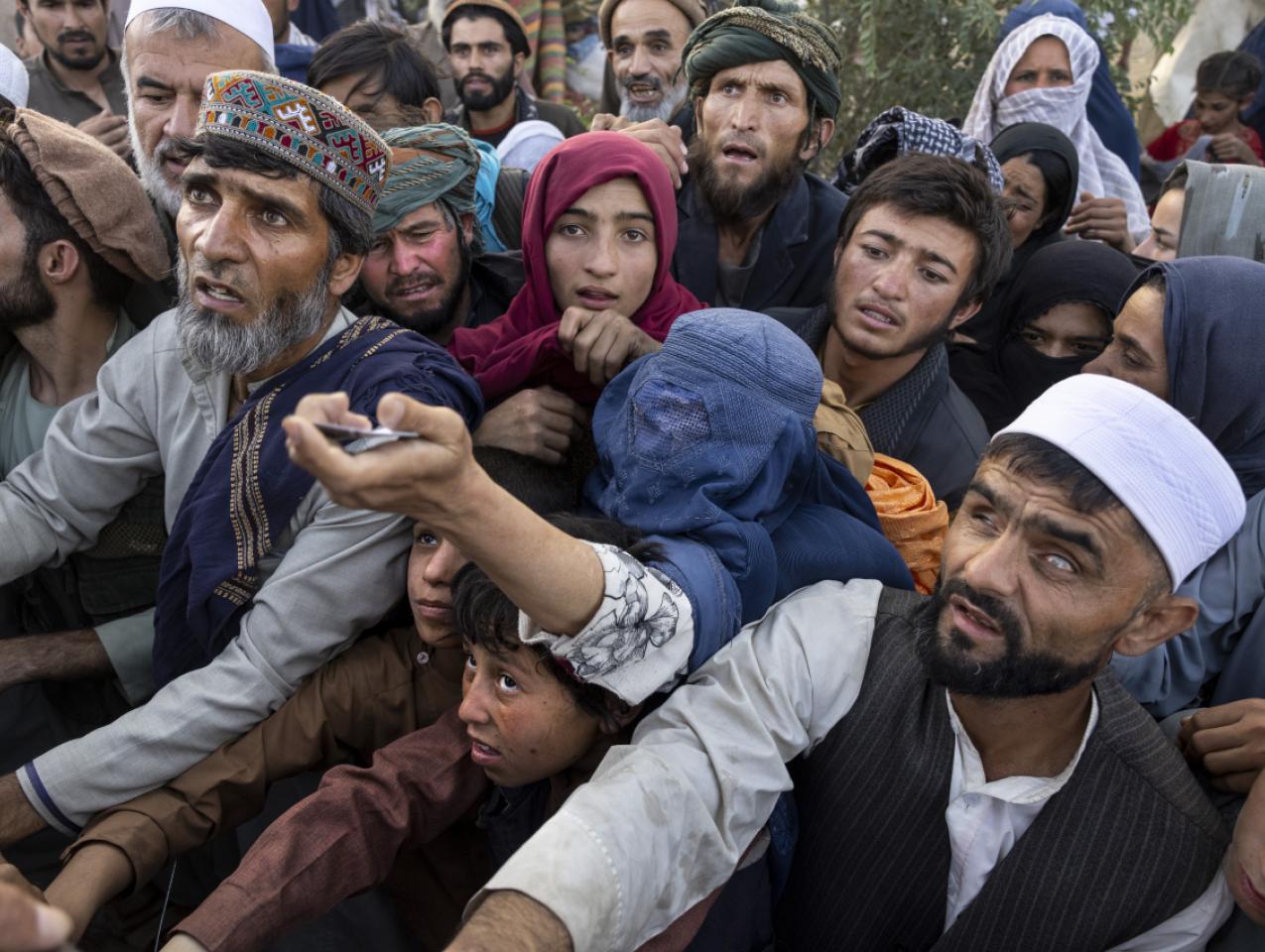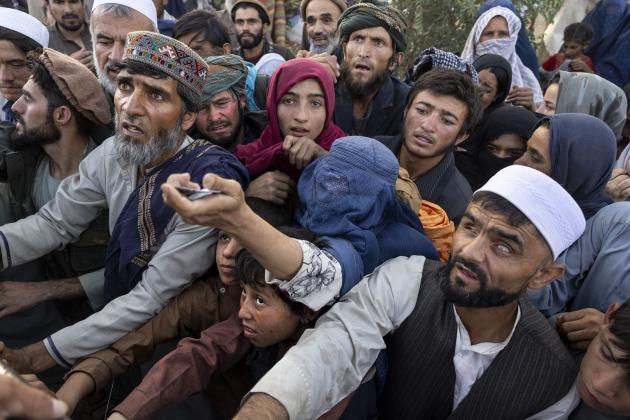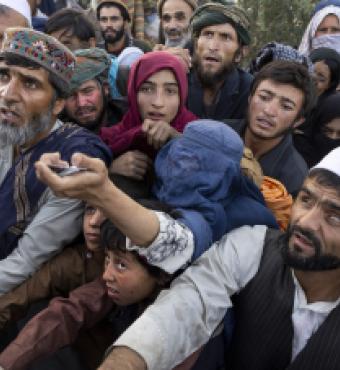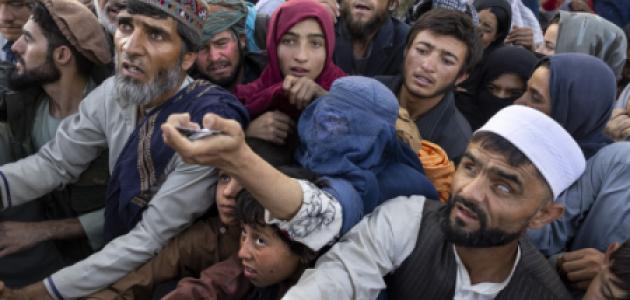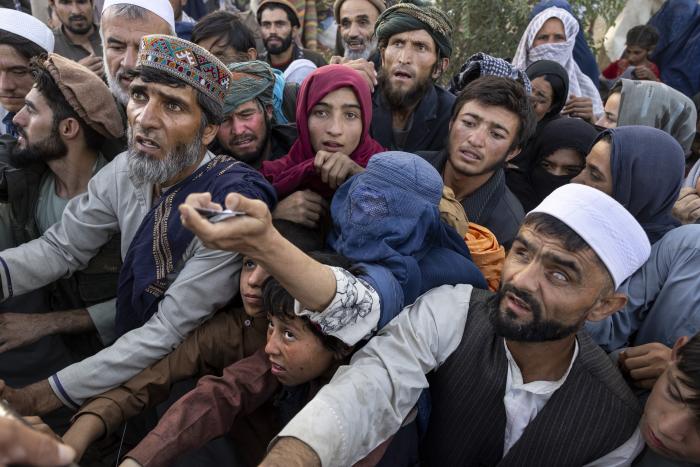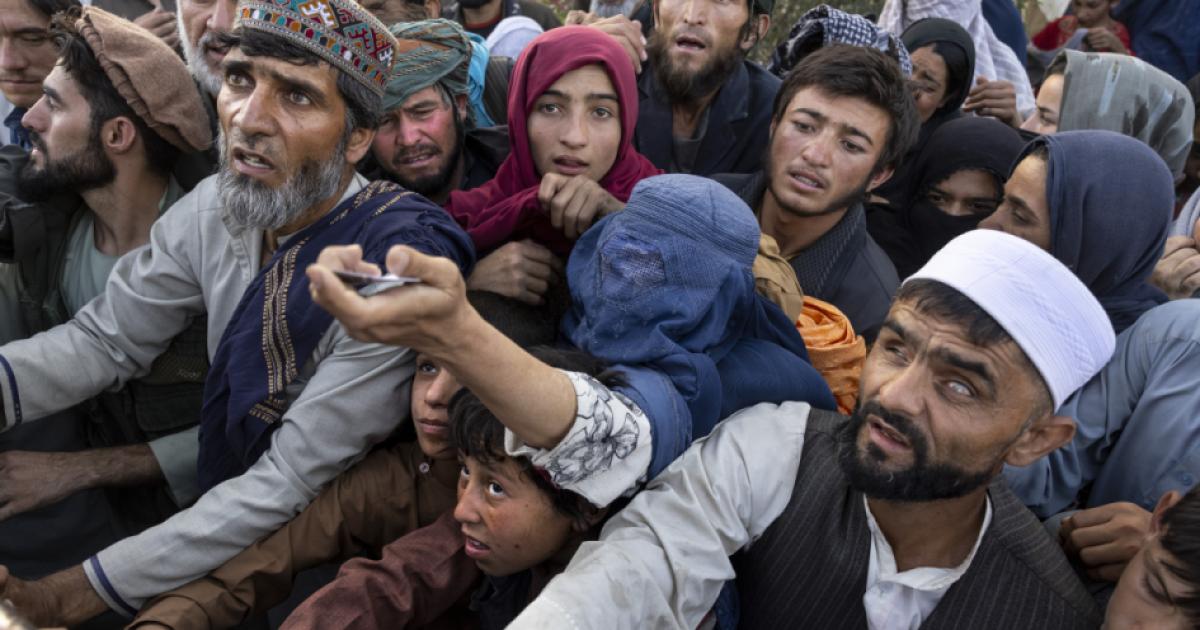By Jonathan Movroydis
In this interview, research fellow Joe Felter discusses his role in support of Task Force Pineapple, an initiative founded by members of the special operations community to help refugees escape Afghanistan, which was taken over by Taliban fighters in mid-August.
A veteran US Army special forces officer, Felter describes how the task force was initially created to help with the evacuation of Afghan special forces commandos who fought alongside US troops but has now expanded its reach in support of refugees applying for special immigrant visas (SIVs), evacuating the country, and resettling in societies in the United States and elsewhere.
He also explains how—contrary to news reports that the Taliban are not seeking reprisals against Afghans who supported American and coalition forces over the past two decades—there is widespread evidence of brutality circulating on social media. He argues that the recent events are a moral wound for America which, through a precipitous troop withdrawal, left Afghans vulnerable in the wake of the Taliban assault and ultimate collapse of the democratically elected government.
Finally, Felter calls on Americans to offer their support to these Afghan refugees, who gave it their all fighting alongside US forces in the fight against the Taliban and al-Qaeda, and to support their hopes to build a better and freer future for their country.
Will you describe the magnitude of the current crisis in Afghanistan from your perspective as a retired special forces officer and your experience in that country?
This is a major crisis at multiple levels. Certainly, first and foremost, it's a humanitarian crisis. There are reprisals for Afghans who have supported American forces over the past two decades. There are large numbers of displaced Afghans whose lives are at risk and who are trying to evacuate into neighboring countries and beyond. They have left their homes and belongings in the hopes of getting out to safety.
For those who are more concerned about American interests, it's a national security crisis. Certainly, you don't get to decide unilaterally that a war is over against extremists and terrorists who still are plotting to do us harm. Our enemies get a vote. Terrorists and extremists in this region will continue the fight against us and our allies and partners. The decision not to leave even a modest counterterrorism-focused presence in Afghanistan put us in a much more difficult position to defend our interests in the future. Our ability to identify and interdict terrorist threats in the region has certainly been diminished. Beyond counterterrorism efforts, in the context of great power competition, for example, leaving Afghanistan has put us at a geostrategic disadvantage. Our lack of consultation and cooperation with our allies and security partners when we departed certainly undermined diplomatic relationships and shook their confidence. They may now look at this event as a precedent when deciding whether it’s worthwhile to make future security commitments with the United States.
Finally, there's been a moral injury, I would argue. We violated a promise, to the Afghans who worked for us and who trusted us, to support them in their fight against the Taliban and al-Qaeda. We've instead largely abandoned them. I think this is particularly heartfelt in the veteran community that fought in Afghanistan, who witnessed their fellow troops making the ultimate sacrifice. This abrupt departure is a moral injury that we're going to suffer from for quite some time.
Will you describe the origins of Task Force Pineapple and your role in the effort?
Task Force Pineapple is one of many really impressive grassroots efforts. It is largely veteran-led, but involves a range of concerned citizens who unfortunately saw that the US government was not acting with enough urgency to rescue our own citizens trapped in Afghanistan, as well as Afghan Green Card holders and others who qualified for SIVs whose support for the United States and our allies and partners placed their and their families’ lives at considerable risk.
One of Task Force Pineapple’s organizers is Col. Scott Mann, a retired special forces Green Beret. I got to know Scott about a decade ago when he was doing some amazing work in Afghanistan, helping to develop security at the village level. This was our last best hope at success in the counterinsurgency fight. The genesis of the organization was when an Afghan commando, Hassan, whom Scott trained, started to communicate last summer that he was in trouble. Scott and some of his other former Army colleagues helped Hassan navigate literally to the airfield and identify themselves to US forces on the perimeter using a near recognition signal on their mobile phones. The signal at the time was a pineapple, from which the task force received its name. Thankfully, Hassan was able to evacuate.
Based on that precedent, the task force started aggressively helping many others. Given the group’s background in special forces, we started focusing on the evacuation of commandos and their families, but then expanded this effort to help as many at-risk Afghans as possible. Again, Task Force Pineapple is just one organization that is helping. There are others, including, for example, Spirit of America and Digital Dunkirk. This is a great credit to concerned American citizens who say, "Hey, we're going to try to fill the gaps where the US government is not acting. We can't wait because there are too many lives at risk."
The story here is that Americans care. However, these groups can only fill gaps for so long, and there are certain tasks which they are not able or authorized to take on. The US government, for example, is the only entity with the authority to process and issue visas and a number of other items that are required to evacuate at-risk Afghans to safety.
What types of gaps have been filled by private efforts like Task Force Pineapple, and how is the initiative continuing to provide relief?
Early on, the folks I work with had relationships with Afghans who were at high risk of violent attacks by the Taliban. And again, the commandos are really at risk because they were very committed and effective fighters, and the Taliban can easily identify them. These special forces veterans have the knowledge, relationships, and trust needed to help evacuate these Afghans. It became like an Underground Railway, to use that analogy, the network that helped deliver Blacks from slavery in the South to freedom in the North before the American Civil War.
Thankfully, folks like Scott Mann and others established these organizations and filled those gaps as effectively as they could, given their limitations. These are private individuals working from their homes in many cases and speaking to at-risk Afghans in country. It can be really stressful—we call it the world's longest 911 call. I and others have talked to individuals in Afghanistan extensively. We're trying to keep their morale up and give them some advice on how to escape based on their particular circumstances.
In some cases, it was required to establish contact with people in the airfield at Kabul Airport, whether it be marines, the 82nd Airborne Division, or our special operations forces serving there. More often than not, success hinged on these personal relationships. We would call a US military official on the ground and say, "Hey, look. Here is a member of the Afghan forces that gave his all for America. He's at risk. He's outside the wire at this location with said icon on his cell phone. Can you bring him into the wire?” There are multiple examples of such occurrences. Thankfully, we were able to get some Afghans out, but, sadly, so many others were not able to escape and are still at risk right now.
Are you currently talking to anybody on the ground in Afghanistan?
I speak or text nearly every day to someone in Afghanistan. I recently spoke to an individual who worked at my last command in the country. I had a number of Afghans supporting my unit. Now, he is a marked target of the Taliban and is trying to leave the country with his wife and two children. He told me that his house had been searched and ransacked. He sent me pictures of himself with literally bloodied clothes as a result of being beaten. He's on the run, moving from house to house, living with different relatives.
There is another case of a former interpreter whom I got to know well, whose mother, brother, sister, and sister-in-law were all at risk and in danger. We were able to raise funds and pay someone to drive this family over land. Thankfully, they made it safely across the border into Pakistan. We are currently helping them with their immigration paperwork, but their future remains uncertain.
Have these efforts prompted the US government to mount a more effective response?
At the end of the day, only the government can process visas for evacuees. There was a large backlog of SIVs leading up to our departure from Afghanistan. We're going to need to work with our embassies and consulates to provide relief to Afghans as they enter bordering Tajikistan, Uzbekistan, Pakistan, and elsewhere. I am not criticizing our consular officers. They are working 24/7. The volume of cases thrust on them is pretty extraordinary. But we're going to have to pull together and energize this process because of the scale of this humanitarian crisis.
Initially, I was encouraged when the Taliban leadership said there will be no reprisals against Afghans who supported coalition forces. Now, however, Task Force Pineapple and myself personally are receiving photos and videos of torture and executions of individuals. This notion that the Taliban 2.0 are somehow different defies historical precedent and reality. They are just as vicious and medieval as they were in the 1990s. This horror is rarely reported in the news media, but I'm seeing it in my own feeds on WhatsApp, Signal, and other social media applications. It's disturbing. But it also raises a sense of urgency as more and more people are suffering and dying every day.
What other kinds of challenges do Afghans face when trying to leave the country?
I go back to the special challenges of these elite Afghan commandos. For example, they may have a legitimate visa, and they may be manifested on a plane, but they are afraid to go to these airports because they will have to confront a Taliban checkpoint. There have been instances where commandos have been pulled out of their cars, threatened, or even tortured. Worse, sometimes it’s their families who have been attacked.
If someone with an SIV presents it at a checkpoint, the Taliban know that he or she received a visa for helping Americans. Ostensibly, the United States has already done some of the legwork for the Taliban just by identifying people with SIV status.
What can Americans do in their own communities to help Afghan refugees find relief?
The suffering continues in Afghanistan and it is only going to get worse. I think we must do all we can for Afghans who gave their all in support of America’s fight against the Taliban and al-Qaeda. These Afghans, by and large, are upstanding citizens who risked everything for democracy in their country. No one appreciates freedom more than them.
This is a long-haul effort. It's not just about helping them evacuate Afghanistan. It's a resettlement process that involves creating opportunities for them to integrate into our society or elsewhere. There are people of means that can donate money. There are some great churches and nonprofits doing amazing work, and certainly people can provide support through those channels. Let's support organizations that are working diligently right now to help others evacuate and relocate to places where they can live freely.
US military veterans and many other Americans are traumatized by the scenes of a young Afghan man literally falling off the fuselage of a C-17 taking off from the Kabul Airport. America is better than this and that's not the America that I want to remember. There are so many other images of the American experience in Afghanistan that I do want to remember, including our support in Afghans’ quest for greater freedoms, democracy, and an improved quality of life. Ultimately, these recent events are a moral injury for America. It’s a mark on our soul and it's going to take some time to heal.







